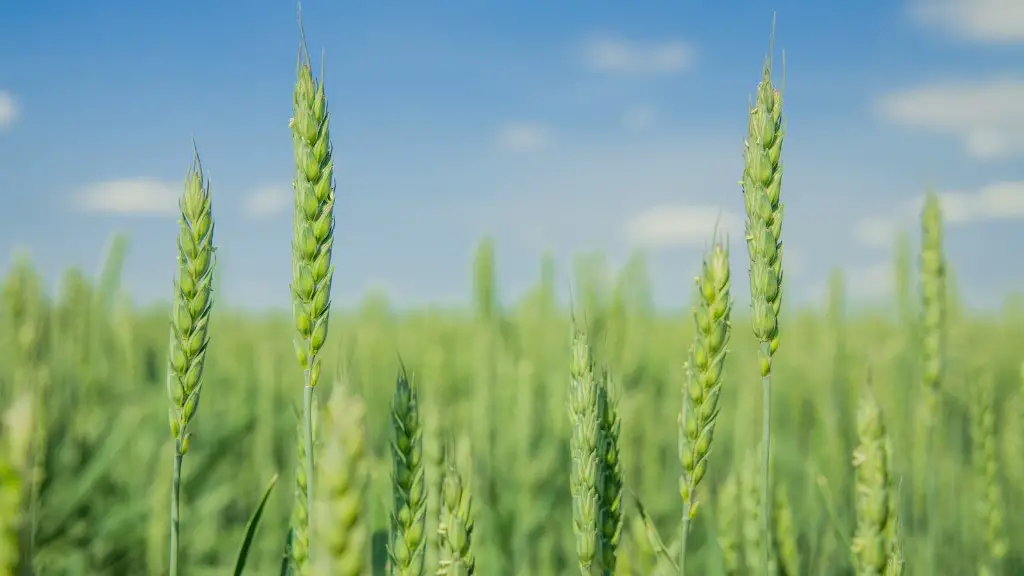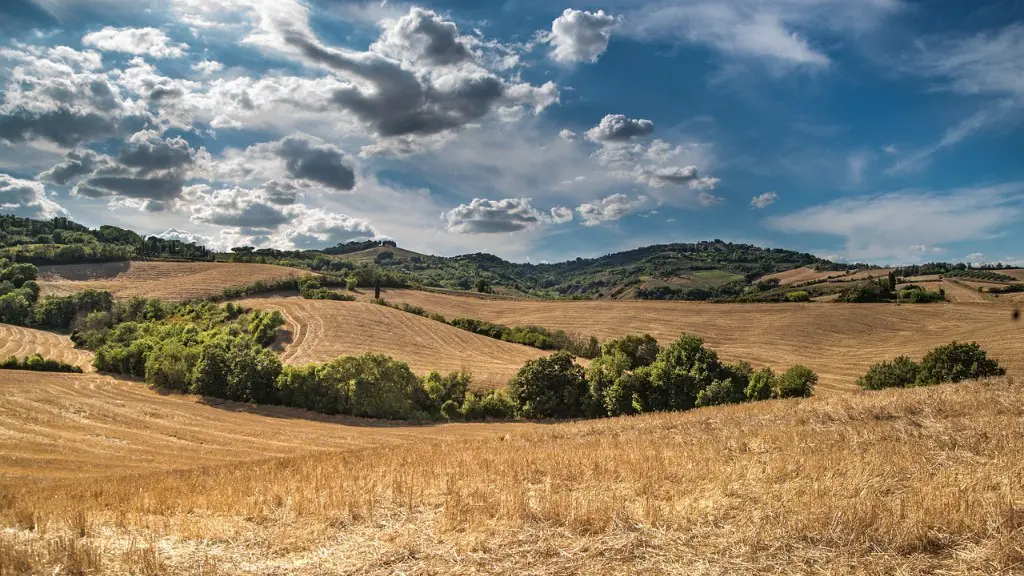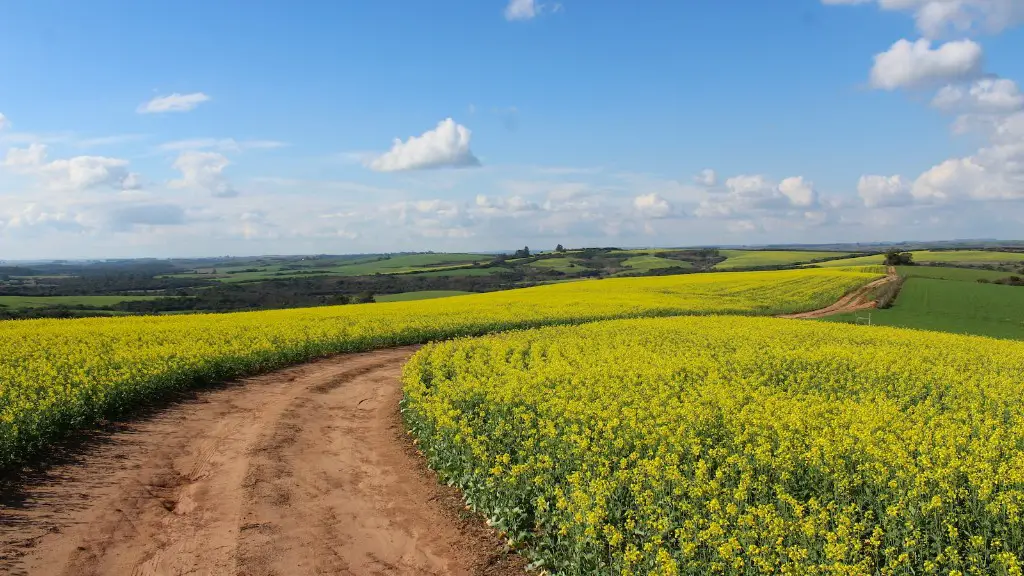Agriculture is the backbone of the Indian economy. Over 70% of the rural households depend on agriculture as their main source of income and livelihood. In India, agriculture accounts for 18% of the country’s GDP and employs around 54% of the total workforce.
The importance of agriculture in India cannot be overstated. Not only does it provide a livelihood for a huge majority of the population, but it is also the main source of food for the country. Additionally, agriculture is a key driver of economic growth and plays a vital role in the country’s export earnings.
Looking ahead, the government is working to boost the agricultural sector through initiatives such as the Pradhan Mantri Fasal Bima Yojana and Pradhan Mantri Krishi Sinchai Yojana. With continued support from the government and all stakeholders, agriculture in India is poised for strong growth in the years to come.
agriculture is important in india for a variety of reasons. it is a major source of livelihood for many people in the country, as it employs a large percentage of the workforce. agriculture also contributes significantly to the country’s economy, as it is responsible for a significant portion of the GDP. in addition, agriculture is important for food security in india, as it is a major producer of food crops.
Why is agriculture important in India?
Agriculture is an important sector of Indian economy as it contributes about 17% to the total GDP. It is the main source of livelihood for over 60% of the population. Indian agriculture has registered impressive growth over the last few decades. The sector has been a major contributor to the country’s economic development.
The government has taken various initiatives to promote agricultural growth in the country. These include providing financial assistance to farmers, investing in infrastructure development, and creating an enabling environment for the sector. The government’s efforts have resulted in significant progress in the agricultural sector.
However, there are still some challenges that need to be addressed. These include improving productivity, ensuring food security, and ensuring access to markets. With continued effort and support from the government, the agricultural sector is poised for further growth in the coming years.
Agriculture plays a critical role in the entire life of a given economy. It is the backbone of the economic system of a given country. In addition to providing food and raw material, agriculture also provides employment opportunities to a very large percentage of the population.
Why is India called an agricultural country give 5 reasons
India is a country with a population that is mostly reliant on agriculture for their livelihood. The country has many rivers and fertile plains which make it ideal for farming. However, the majority of the population still resides in rural areas. This means that a large portion of the population is still dependent on agriculture for their income. This is why a majority of the land in India is used for food production.
Agriculture is the backbone of India’s economy as it employs around two-thirds of the population and is a major source of raw materials for industries. The sector is also a key driver of rural development and plays an important role in poverty alleviation. In recent years, the government has taken various initiatives to boost the agricultural sector, including increasing investment in infrastructure, strengthening linkages between farmers and markets, and providing financial and technical support to farmers.
What are 3 benefits of agriculture?
1. It’s the main source of raw materials: Agriculture is the main source of raw materials for many industries, including the textile, pharmaceutical and food processing industries.
2. It’s important to international trade: Agriculture is a major export industry for many countries and is vital to their economy.
3. It plays a big role in a nation’s revenue: Agriculture is one of the biggest contributors to a nation’s GDP.
4. It provides employment: Agriculture provides employment for millions of people around the world.
5. It’s crucial to a country’s development: Agriculture is essential for a country’s development, as it provides food and raw materials for industry.
6. It can help heal the environment: Agriculture can help to heal the environment, by using sustainable practices and reducing pollution.
7. It goes hand-in-hand with war: Agriculture is often a key factor in wars, as countries fight for control of resources.
8. It’s a way of life for many: For many people, agriculture is a way of life and has been for centuries.
Agriculture is the primary source of raw materials for key businesses including cotton and jute fabric, sugar, tobacco, and edible and non-edible oils. Drugs, diesel fuel, polymer, and other significant sectors rely on these elements in ways that many people have no idea of. The agricultural sector employs a large number of people and provides an important contribution to the economy.
What is the most important role of agriculture?
Agriculture is important for many reasons. It helps sustain life by providing the food we need to survive. It also contributes $7 trillion to the US economy. Despite agriculture’s importance, the Economic Policy Institute reports that farmworkers are among the lowest-paid workers in the US. That’s why it’s important to support policies that help ensure fair wages and working conditions for these workers.
There are three goals of agricultural development in India. These are: (a) achieving high growth by raising productivity; (b) inclusiveness by focusing on lagging regions, small farmers and women; and (c) sustainability of agriculture. India has made progress on all three fronts. On growth, agricultural GDP has nearly tripled since 1991. On inclusiveness, the government has implemented a number of programs to help small farmers and rural women. And on sustainability, India has taken steps to promote organic farming and water conservation.
What is unique about Indian agriculture
The United States Department of Agriculture (USDA) reports that India has surpassed the European Union to become the world’s largest milk producer. In 2014, India produced 156.3 million tonnes of milk, while the EU produced 153.7 million tonnes. India is also the world’s largest producer of pulses and jute, and has the world’s largest cattle herd (buffaloes). India is the second largest producer of rice, wheat, cotton, sugarcane, tea, groundnut, fruits, vegetables and goat meat.
India is the world’s largest producer of milk, pulses and jute, and ranks as the second largest producer of rice, wheat, sugarcane, groundnut, vegetables, fruit and cotton It is also one of the leading producers of spices, fish, poultry, livestock and plantation crops. The country has a tropical climate and is home to a diverse range of flora and fauna. India is also the world’s second largest exporter of agricultural products.
How does agriculture reduce poverty?
Agricultural growth benefits the very poorest people primarily by increasing the demand for their labor. Agricultural growth also increases the probability of obtaining employment and may increase the salary level, thereby increasing the income that can be accrued from selling labor.
Urban farming has a number of benefits that are becoming increasingly more acknowledged. These benefits include lower greenhouse gas emissions, minimal transportation requirements, and reduced energy use for food production. As more and more people become aware of these benefits, the trend of urban farming is starting to gain popularity.
How does agriculture help our community
Agriculture is a critical sector for the economy and food security of many developing countries. It can help reduce poverty, raise incomes and improve food security for a large portion of the world’s poor who live in rural areas and work mainly in farming.
There are many challenges to increasing productivity and incomes in the agricultural sector, including access to land, water and other inputs, technology, and market access. However, with the right policies and investments, agriculture can be a powerful tool for poverty reduction and food security.
The role of farmers is vital to the economy and to the people of the country. They provide the food that we eat and the products that we use. Without them, we would be lost. We depend on them for our very survival.
How can agriculture help the economy?
Agriculture employs a wide range of people in many different roles. Farmers are just a small part of the agricultural workforce. There are also people who work in food processing, distribution, transportation, and manufacturing. All of these roles are important for the agricultural industry.
Improving rural employment opportunities is a key part of improving the agricultural industry. By providing more jobs in rural areas, we can keep more people employed in agriculture and help the industry grow.
India is the world’s second-largest producer of wheat and rice, as well as a number of other food staples. The country is also a major producer of several dry fruits, agriculture-based textile raw materials, roots and tuber crops, pulses, farmed fish, eggs, coconut, sugarcane, and numerous vegetables.
Conclusion
Indians have been farming for centuries and it is an important part of our culture and heritage. Indian agriculture is essential for the country’s economic stability and growth. It is a major source of livelihood for millions of people in India. Agriculture is also a significant contributor to our GDP. The sector employs around 54% of India’s workforce and contributes around 17% to our GDP. The importance of agriculture in India cannot be underestimated.
Agriculture is extremely important in India. Not only does it provide food for the majority of the population, but it is also a major source of income and employment. Agriculture is estimated to account for around 15% of India’s GDP and around 50% of the workforce. In addition to being an important economic sector, agriculture is also vital for food security in India.





